Hey there! If you're looking to apply for educational grants, you're in the right place. Crafting a compelling letter can make all the difference in securing the funding you need to further your studies. In this article, we'll guide you through the essentials of writing an impactful grant application letter that stands out. So, let's dive in and help you pave your way to educational success!
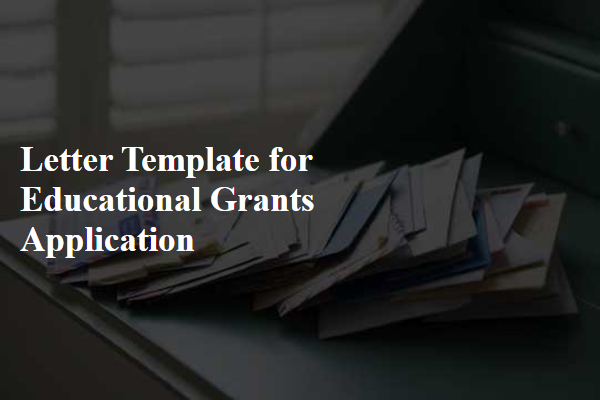
Applicant's Personal and Academic Information
The applicant's personal and academic information includes critical details such as full name, date of birth, and contact information (phone number, email address). Academic history reveals the institution's name (e.g., University of California, Berkeley), degree program (e.g., Bachelor of Science in Biology), and current year of study (e.g., sophomore, junior). Important achievements like cumulative GPA (e.g., 3.8/4.0 scale) and relevant coursework (e.g., Advanced Genetics, Microbiology) highlight the applicant's academic rigor. Additional sections may include extracurricular involvement (e.g., membership in the Biology Club) and volunteer work (e.g., community service at local hospitals), demonstrating commitment to personal growth and community engagement. Future academic goals, such as pursuing a Master's degree in Environmental Science, can also be outlined, showcasing ambition and foresight in the applicant's educational journey.
Statement of Purpose and Goals
A statement of purpose for an educational grant application outlines the applicant's motivations, objectives, and intentions for utilizing the funds. The document should articulate ambitions related to academic advancement, such as pursuing a degree in Environmental Science or Engineering, and highlight specific goals like researching renewable energy solutions or developing sustainable agricultural practices. It is essential to mention relevant experiences, such as internships at notable organizations like the World Wildlife Fund or community service in urban gardening initiatives. The applicant should emphasize the broader impact of their educational pursuits on communities, such as promoting environmental awareness or addressing food security issues. Maximizing the potential of grant funding (which could range from $1,000 to $50,000) is crucial for achieving these objectives and contributing positively to society.
Demonstration of Financial Need
Demonstration of financial need plays a crucial role in securing educational grants, especially for students from low-income families. Many applicants, often high school graduates transitioning to higher education institutions such as community colleges or universities, face significant financial burdens that hinder their academic pursuits. According to the National Center for Education Statistics, the average annual cost of college tuition and fees can exceed $20,000, which does not include living expenses, textbooks, and transportation costs. For families earning below the federal poverty line, this amount is often insurmountable. Additionally, financial aid forms such as the FAFSA (Free Application for Federal Student Aid) assess income, assets, and family size to determine eligibility for need-based assistance efficiently. It is essential to outline significant expenses and demonstrate the gap between anticipated financial resources and actual costs to maximize grant opportunities.
Outline of Proposed Study or Research Plans
The proposed study focuses on the impact of urban gardening initiatives on community mental health, specifically in metropolitan areas like New York City and Los Angeles. Urban gardening programs, such as the GreenThumb initiative in NYC, aim to transform vacant lots into vibrant gardens, fostering social connections and improving well-being among residents. The research will employ quantitative methods, surveying an estimated 500 participants over six months to assess changes in mental health indicators, including anxiety and depression levels. Additionally, qualitative interviews with community leaders will provide in-depth insights into the perceived benefits of these green spaces. By analyzing this data, the study seeks to identify evidence-based strategies that cities can implement to enhance public health through gardening activities, ultimately supporting the growing movement of urban sustainability and mental wellness initiatives.
Letters of Recommendation and Supporting Documents
Letters of recommendation play a crucial role in the educational grants application process, providing insights into the applicant's character, work ethic, and academic potential. Typically, these letters are written by educators, mentors, or professional supervisors who can attest to the applicant's skills and contributions. Supporting documents such as transcripts, resumes, and financial need statements further substantiate the application, detailing the applicant's academic achievements and socioeconomic background. Certain grants, like the Fulbright Program or National Science Foundation grants, may have specific formatting guidelines and submission protocols for these materials, highlighting the importance of attention to detail and adherence to requirements. Collectively, these documents create a comprehensive narrative that showcases the applicant's qualifications and aspirations.

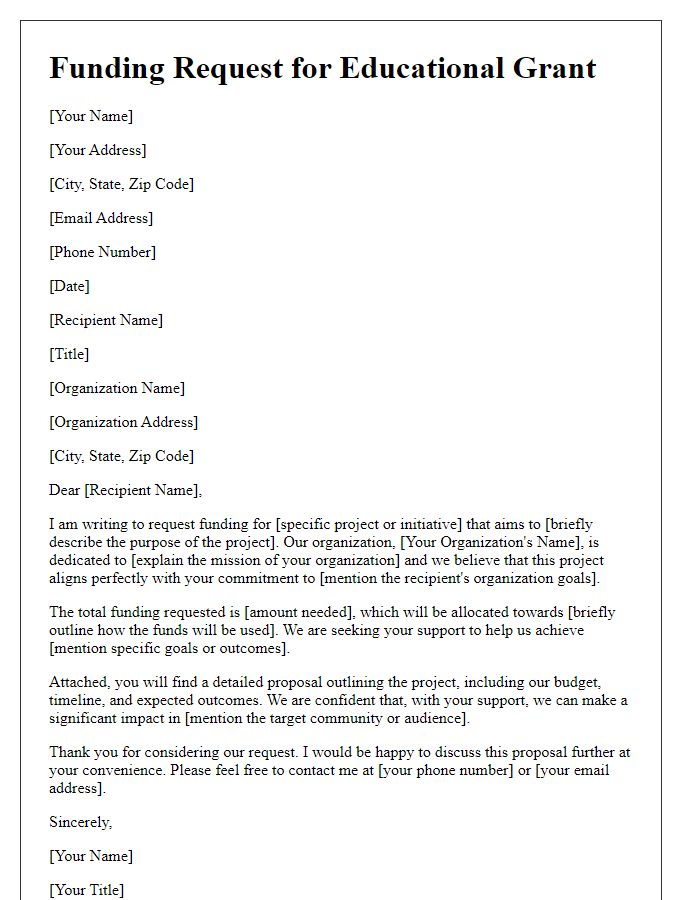
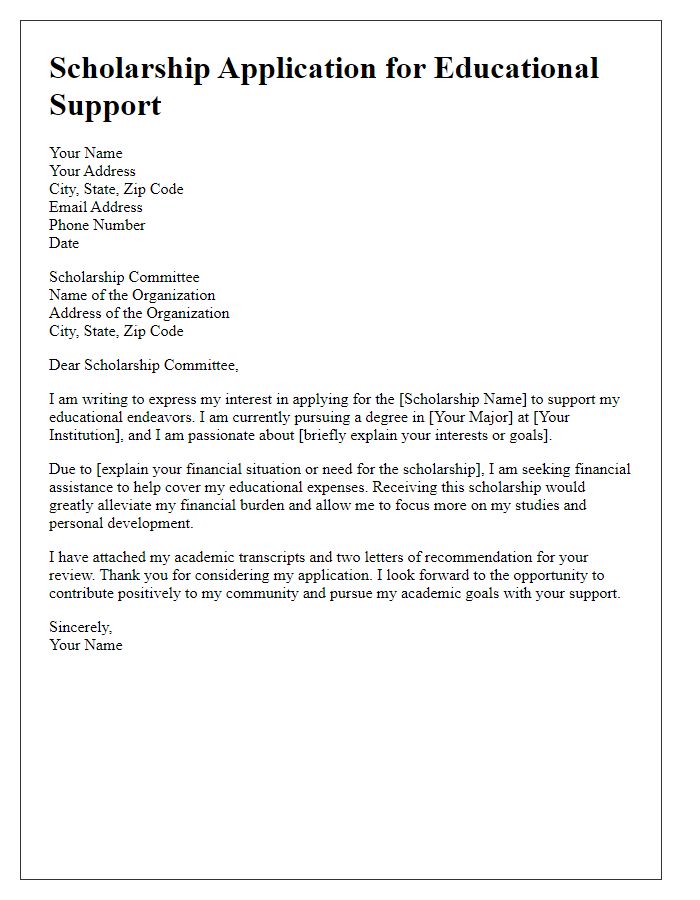
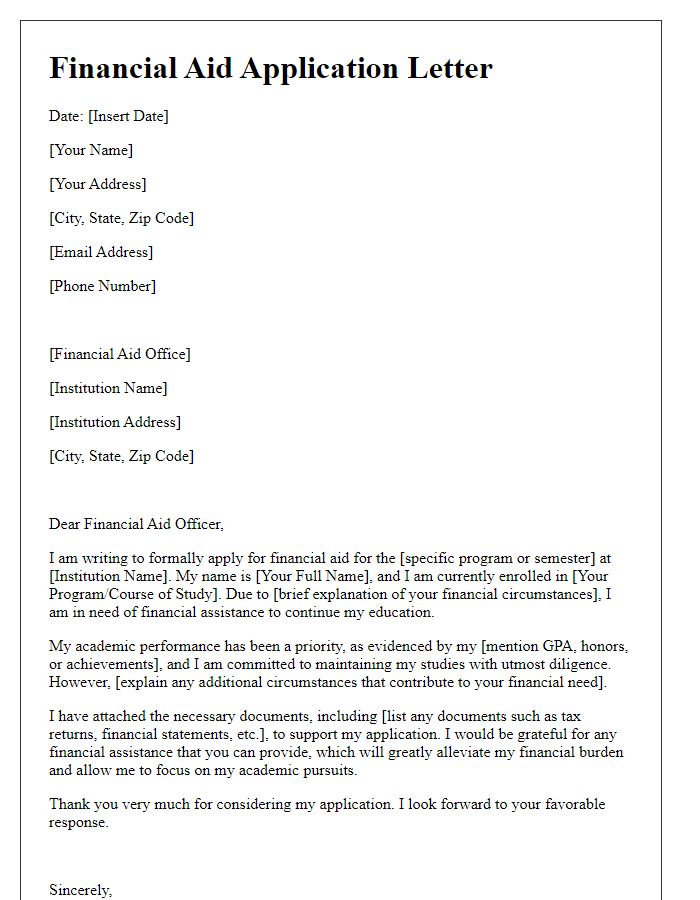
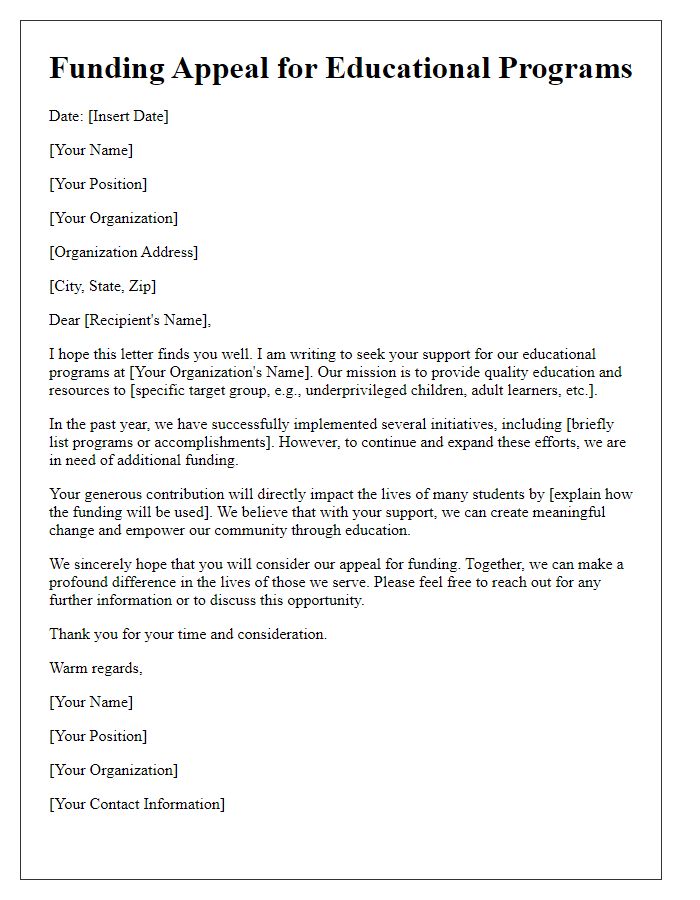
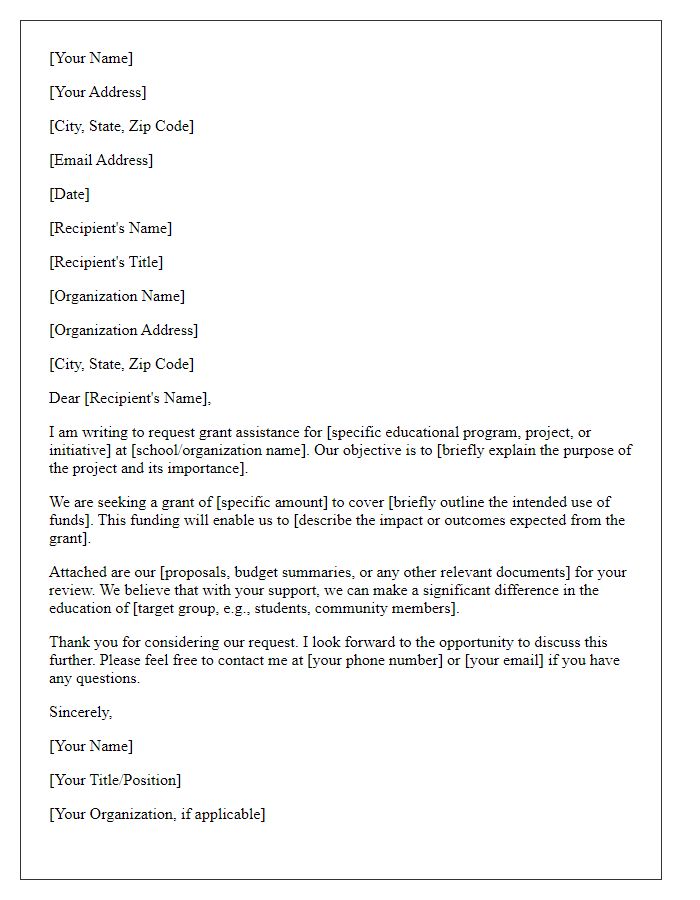
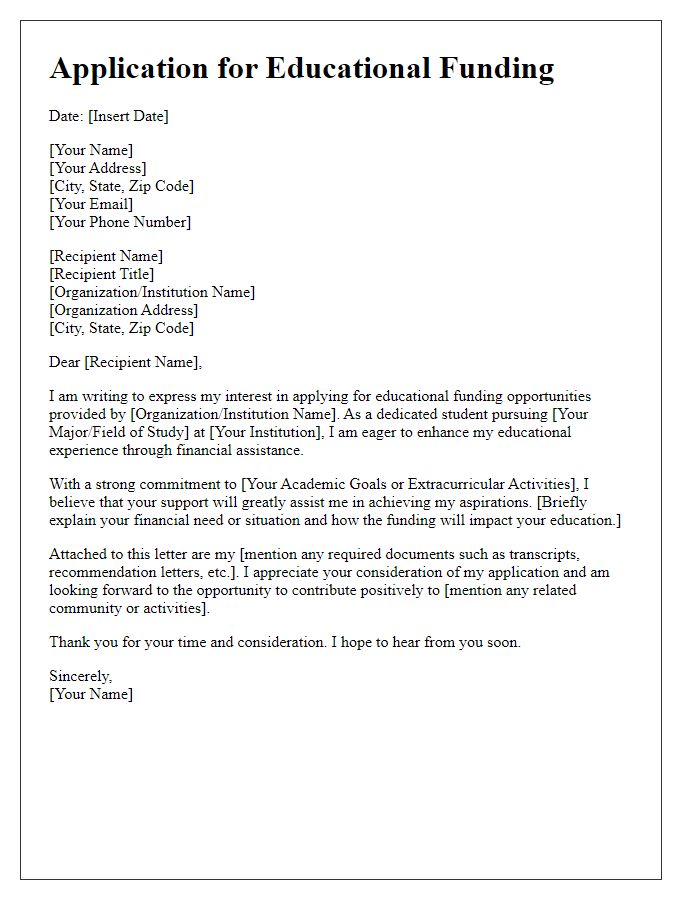
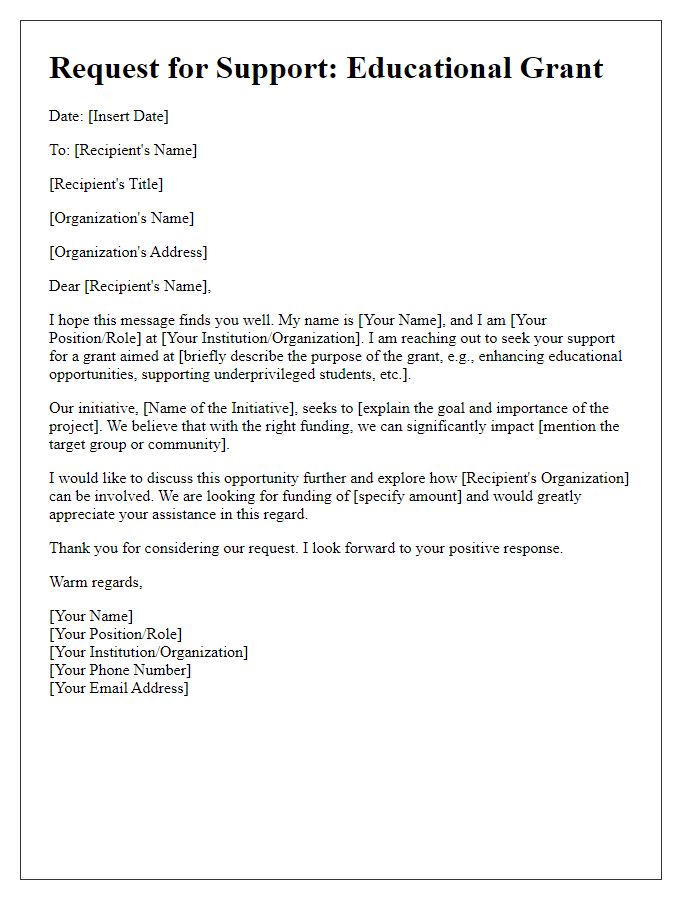
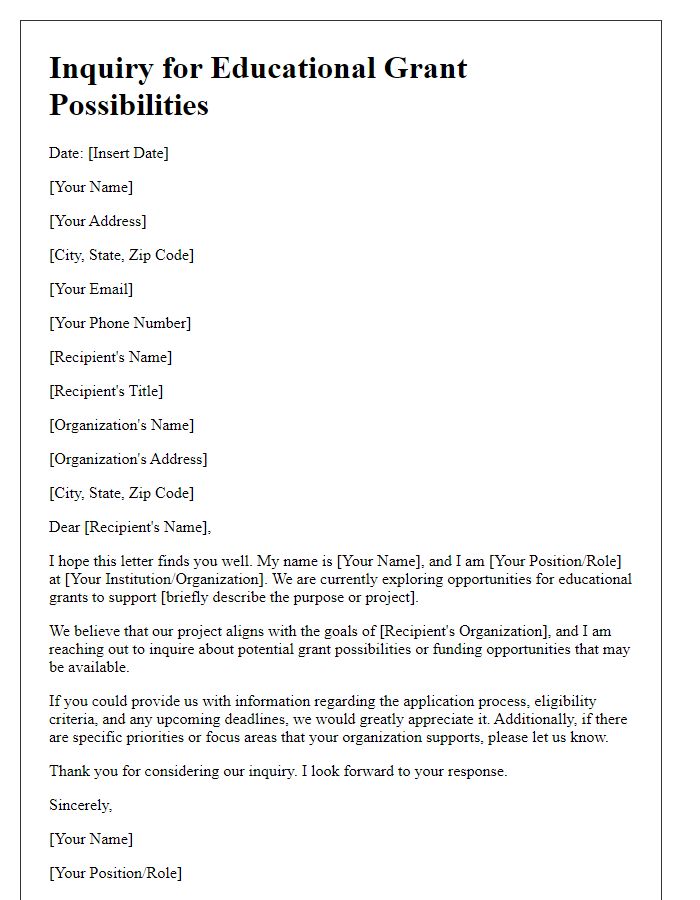
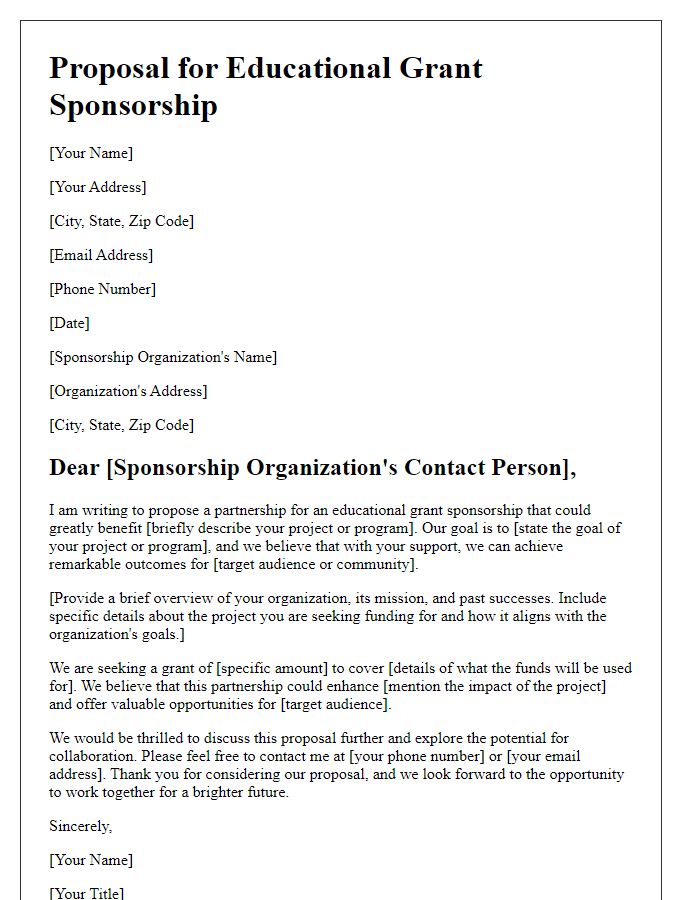
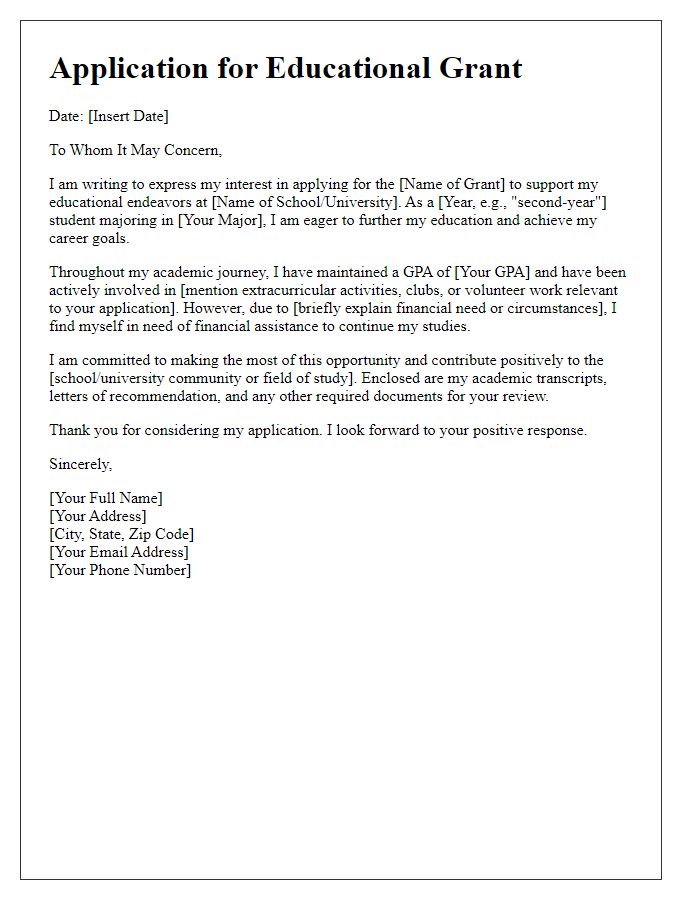


Comments